-

Make a real difference...
-
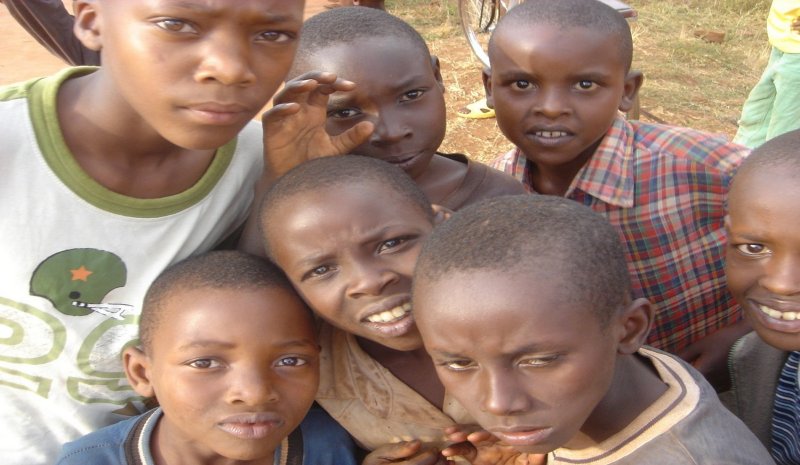
to communities across Africa.
-
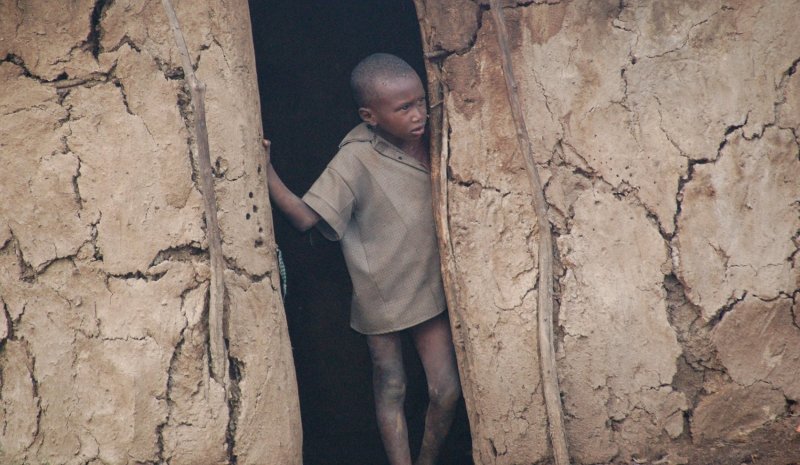
Share skills and knowledge...
-

and sponsor children...
-
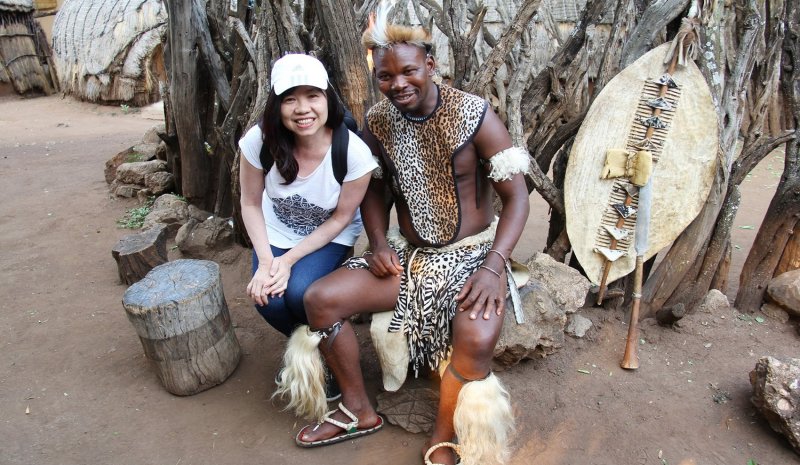
to develop a better future
-

...and change lives forever!
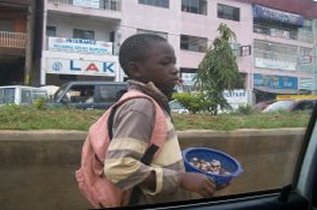
In 2019, Cameroon had over 900,000 internally displaced people, 51% of whom were children with many ending up on the streets of cities like Yaounde and Douala
and to a lesser extent Kumba and Tiko in the south-west province. In the past 10 years, the number of street children in Cameroon has increased from around 1,000 to over 10,000 and this surge has, at least in part, been attributed to the separatist crisis in the country's English speaking north-west and south-west regions in addition to Boko Haram's terrorist attacks in the region along Cameroon's northern border with Nigeria causing many to flee their homes. Many other children arrive with nothing having fled the troubles in the Central African Republic and end up doing whatever it takes to survive, putting thmeselves at risk of exploitation and trafficking often ending up working on agricultural plantations without compensation as well as in factories, street selling and fishing. Of note is that historically Cameroon has not appeared to accept this as a problem, and whilst, under duress, some arrests have been made for the trafficking of children, few prosecutions have followed.
Others have ended up on the streets for very much the same reasons as other children across the world. Some are orphans and
have no-one to support them, others flee family violence and
relationship breakdowns, others simply work on the streets to
supplement meagre family incomes whilst others are drawn by the
prospect of finding work and earning an income but as one 15-year-old boy discovered, "Initially I was excited by the idea of finally
being free. I thought I was finally going to do whatever I wished,
but little by little I understood that life in the streets is
difficult. It is horrible." One teenage girl recounts how she ran away from her family home in the northern town of Mokollo when she lost her mother, and her father brought in another wife who molested her and refused to send her to school. A recent survey of street children in Cameroon indicated that 80.2% were boys and 19.8% girls, with most (77.7%) aged between 15–17 years, though some were much younger. Around 80% stated they were Christians, while under 10% said that they were either Muslims with the majority of those coming from Yaounde. When education was discussed with them, 21.3% said they had never been to school while 77.44% had received some element of primary education whilst only 1.3% had attended secondary school.
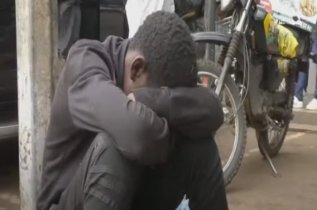
Unemployment in Cameroon is
already high even for those with an education but for children
who live, beg and steal on the streets there is little prospect
of employment without exploitation. As one teenage street child stated, "A friend advised me to come
to Cameroon, telling me there is work and money to be had here, but since I arrived [two months ago], I
have seen nothing of that." In fact, most end up foraging for food in rubbish bins and, when
they become ill, they can't afford to see a doctor. 44.9% of these teenagers had been homeless for a period of 7–12 months, whereas 35.8% had been homeless for less than 6 months and 19.3% for more than 13 months. In a relatively harsh regime, some get arrested
for smoking or begging and find themselves incarcerated in adult
prisons often for months, sometimes years at a time before their
case is brought to court. In the meantime they are at further risk of catching AIDS related illnesses from older, infected prisoners awaiting trial.
Some of these street children in Cameroon are trafficked into
the country from neighbouring Nigeria and Gabon and are forced to work as
domestic servants, however some flee this life and, without
resources to return home, join the hundreds of others living
rough in bus stops and video game houses. Others find refuge on
the verandas of off-licences and bars, whilst others find
sanctuary in abandoned or uncompleted houses. Of course, even when help is available, some of these street children refuse to be reunited with their families given they fled in the first place to avoid abuse. Cameroon's Minister of Women's Empowerment and the Family
has stated these children will be given either education or job training to help them.

However, those familiar with the issue of homelessness will be aware that any available figures mask the true extent of children
living without parental support for they do not take account of
those children bunking down with friends, bed hopping (trying to
find somewhere to sleep for a few days at a time) nor children
who work the streets by day and evening then return home to
sleep and are therefore hard to identify and reach. Currently, Cameroon's Ministry of Social Affairs, partnering with the Ministry of Health, is rolling out with plans to find housing for 3,000 street children in the near future, spurred on by the risks they present given the Covid outbreak. This initiative also aims to help orphans and children who are seeking asylum from nearby countries. The video (below) gives some insights into the lives of street children in Cameroon and below are some programs and projects working with street children in the country you may want to support.
Cameroon Street Children: Sponsor Children in Cameroon
|

|
Details of current volunteer work
opportunities in each of the
countries of Africa.
Find how to sponsor a child in Africa
with our list of organisations,
charities, programs and projects.
Discover all about Africa, its tourist
attractions, history, people, culture
and daily life there.
A treasure trove of African
resources from webcams to
free downloads and news.